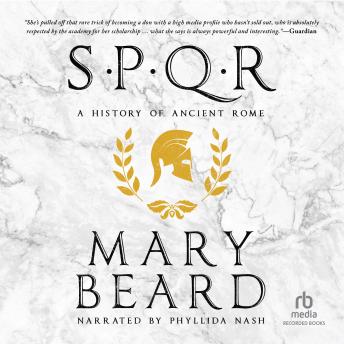
Oh my word, it becomes beyond tedious to read this same statement again and again as it gets run into the ground over the course of the entire book! Not that she’s much more interesting in other areas. I’m not enough of a Roman historian to argue its veracity but it sounds kosher to me.Įxcept Beard repeats this point ad infinitum. It was the great melting pot, the America, of its day. It sounds exhausting and I’m here to tell you that it’s even worse in the reading! I got through the whole mammoth affair but it wasn’t worth it.īeard’s core thesis essentially centres around this one question: how did the Romans become such a major player in the ancient world? And the answer is fairly simply: it conquered one group of people in one country after another, taking their land and rebranding the people as Roman citizens. But she doesn’t so much debunk legend as try to glean from it a plausible history for which the legend is a metaphor and popular image of the truth.Historian Mary Beard covers the first 1000 years of Roman history, from its humble beginnings when (supposedly) Romulus killed his brother Remus before founding what would become the city of Rome, to around the time when Christianity sunk its fangs into the empire to become its main religion, in SPQR. Much of early Roman history is, of course, largely myth and invention, as Beard is not the first to point out. In the story of Catiline’s uprising, Beard defines the constant that runs throughout Roman history: a tradition of fratricide and civil strife that dates back to the mythic murder of Remus by the founding brother, Romulus.


Division and violence would soon bring the 500-year-old Roman republic to an end, through civil war, assassination and, finally, the emergence of single-man rule by one emperor - who maintained the fiction that the empire remained still a republic, ruled by its senate and its people.


 0 kommentar(er)
0 kommentar(er)
